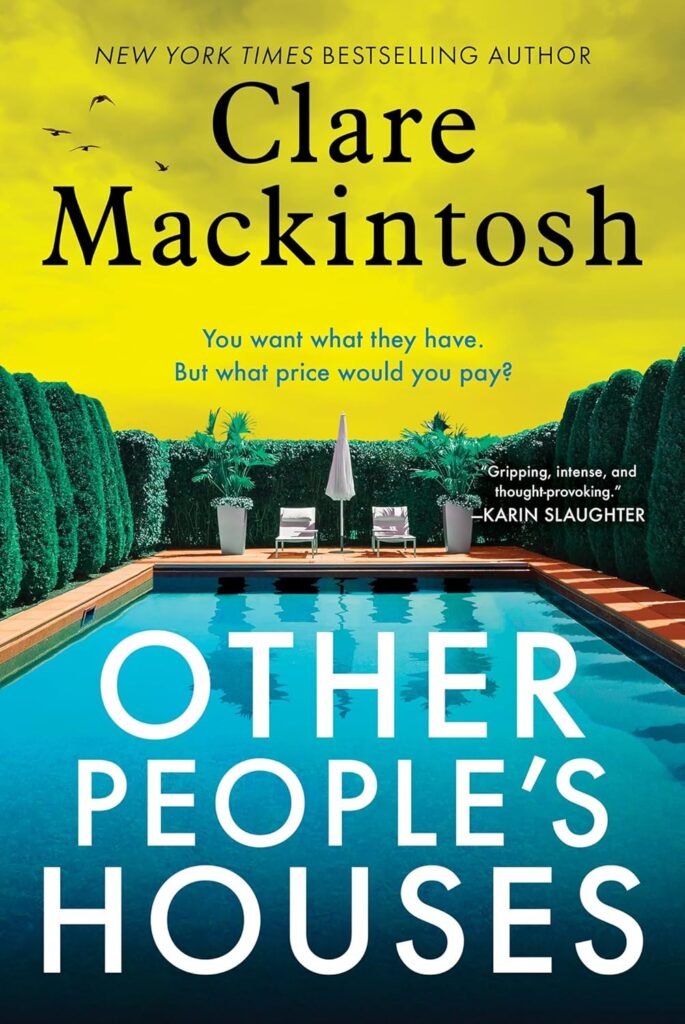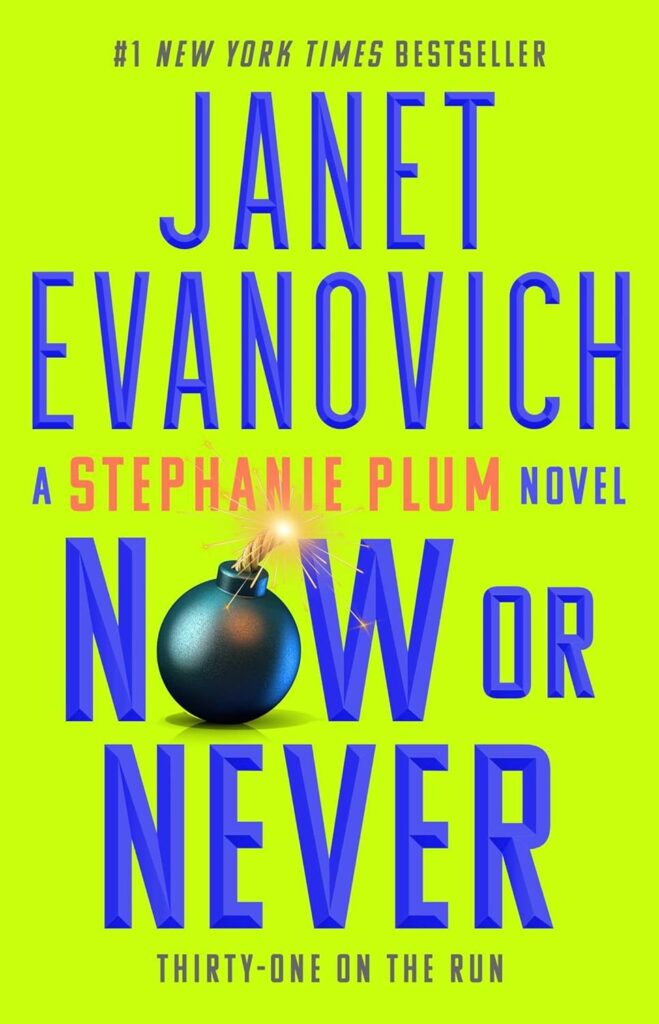In a literary landscape often dominated by escapism, there are rare authors who possess the courage and skill to hold a mirror to our current reality, reflecting its absurdities, its heartbreaks, and its faint glimmers of hope with equal measure. Jess Walter is undoubtedly one such author, and his latest offering, So Far Gone, stands as a testament to his remarkable talent. This isn’t just another novel; it’s a rollicking, razor-sharp, and profoundly moving adventure that plunges headfirst into the turbulent waters of modern America, leaving readers both entertained and deeply reflective. If you’re searching for a book that perfectly encapsulates the chaotic spirit of our times while still delivering a compelling human story, then this So Far Gone book review is for you.
From the moment you crack open its pages, So Far Gone grabs you by the collar and doesn’t let go. Walter, celebrated for his unique blend of wit, pathos, and incisive social commentary in works like Beautiful Ruins and The Cold Millions, once again proves why he’s considered a master of the contemporary American novel. He navigates complex themes with a seemingly effortless grace, weaving together elements of thriller, family drama, and biting satire into a narrative tapestry that feels both prescient and deeply personal. This is a book that speaks directly to the profoundly troubled soul of our fractured country, doing so with a miraculous blend of gentle wryness and angry love.
Diving Deep into So Far Gone: A Comprehensive Look
At its core, So Far Gone is a story about a man forced to re-engage with a world he desperately tried to escape, all for the sake of family. It’s a narrative that resonates with anyone who has felt the growing chasm of ideological divides, particularly within their own kin. This So Far Gone book review aims to unpack the layers of this compelling work, from its intricate plot to its unforgettable characters and the powerful themes that underpin its every turn.
The Narrative Weaves: Plot Overview
The heart of So Far Gone beats around Rhys Kinnick, a retired environmental reporter who, seven years prior, made a dramatic exit from his old life. The catalyst? A Thanksgiving dinner, shortly after the 2016 election, where a heated political argument culminated in Rhys punching his Christian nationalist son-in-law, Shane, squarely in the mouth. In a fit of despair and disgust with the state of the world—and himself—Rhys chucked his smartphone out the car window and retreated to an isolated, off-grid cabin in the remote woods of Washington State, embracing a hermit’s existence with only a pack of hungry raccoons for company.
Life in his self-imposed exile is, predictably, spartan. No internet, no indoor plumbing, and a car that barely runs. Rhys believes he has successfully detached himself from the “broken world” he left behind. That illusion shatters abruptly when two young children appear on his doorstep, looking utterly unfamiliar. They are, in fact, his grandchildren, Leah, aged thirteen, and nine-year-old Asher. Their mother, Rhys’s daughter Bethany, has vanished, leaving a cryptic note instructing a neighbor to take the kids to Rhys.
The situation quickly escalates into a full-blown crisis. Shane, the aforementioned son-in-law, has become deeply entrenched in a dangerous Christian nationalist militia known as the “Church of the Blessed Fire” (also referred to as the “Army of the Lord”), which operates from an armed compound in the Idaho panhandle. While Shane is reportedly searching for Bethany, he dispatches two of his militia cronies to retrieve Leah and Asher. Rhys, in a desperate but ultimately futile attempt to protect his grandchildren, confronts them, only to end up with a broken cheekbone and the children forcibly taken to the militia’s compound.
This act of violence and abduction propels Rhys back into the very world he fled. He is now on a reluctant, madcap quest to rescue Leah and Asher and, hopefully, locate Bethany. His journey is far from solitary. He enlists the help of Lucy Park, his sharp-witted, caustic ex-girlfriend and former city editor at The Spokesman-Review, and Chuck Littlefield, a bipolar retired detective turned private investigator, who happens to be Lucy’s ex and whose manic bipolar episodes add a layer of unpredictable energy and danger to their mission. Even Brian, Rhys’s long-suffering and often furious only friend, finds himself dragged into the increasingly bizarre and perilous road trip.
What unfolds is a propulsive, often hilarious, and deeply unsettling adventure through the cultural and geographical landscape of a fractured America. Rhys and his unlikely companions navigate a world rife with conspiracy theories, ideological extremism, and the lingering ghosts of Rhys’s own past failures. The narrative skillfully balances high-stakes action with moments of profound introspection, revealing the emotional toll of a nation at odds with itself, and the personal cost of disengagement. The plot of So Far Gone isn’t just a vehicle for action; it’s a meticulously crafted exploration of the consequences of our collective divisions.
Unpacking the Ensemble: Characters That Linger
Jess Walter excels at crafting characters who feel undeniably real, flaws and all, and So Far Gone is no exception. The cast is a vibrant tapestry of humanity, each thread contributing to the novel’s rich texture.
Rhys Kinnick is the quintessential “lovable curmudgeon.” He’s a man who, in his despair, chose to opt out, believing he could escape the madness of the world. Yet, beneath his cynicism and self-imposed isolation, lies a deep well of regret and a yearning for redemption. His journey is one of forced re-engagement, a painful but necessary confrontation with the consequences of his past actions as a “failed husband and father.” Walter imbues Rhys with enough self-deprecating humor to keep him from veering into maudlin territory, making his struggle relatable and his eventual reawakening genuinely moving. His smartphone-hating, off-grid lifestyle serves as a poignant counterpoint to the digital cacophony of modern life, highlighting his deep-seated frustrations.
The grandchildren, Leah (13) and Asher (9), are not mere plot devices but fully realized individuals. Leah, particularly, is a precocious and observant adolescent, her quiet rebellion against her stepfather’s oppressive beliefs resonating deeply. Asher, with his innocent musings about what is “Godly” in the context of something as mundane as chess, provides moments of both humor and profound commentary on the absurdities imposed upon innocence. Their presence forces Rhys to confront his responsibilities and rekindles a sense of purpose he thought he’d lost.
Shane, Rhys’s son-in-law, is initially presented as an antagonist, a caricature of Christian nationalist extremism. However, one of Walter’s masterstrokes is to reveal Shane as a more complex figure—a “misguided seeker” rather than a purely villainous one. This nuanced portrayal adds significant depth to the novel’s exploration of ideological divides, suggesting that even those seemingly “so far gone” might be driven by something other than pure malice.
The supporting cast is equally memorable. Lucy Park, Rhys’s caustic ex-girlfriend and former colleague, is a sharp, no-nonsense character who provides both practical assistance and much-needed emotional friction. Her wit and resilience offer a refreshing counterpoint to Rhys’s world-weariness. Chuck Littlefield, the bipolar retired detective, is a source of both comic relief and genuine tension. His manic episodes fuel his devotion to Rhys’s cause, adding an unpredictable element to their dangerous quest. And Brian, Rhys’s only true friend, embodies the frustration and loyalty of someone who has stood by Rhys despite his self-destructive tendencies. The dynamic between these characters is a masterclass in ensemble storytelling, each interaction propelling the plot forward while deepening our understanding of their individual struggles and the broader societal fractures they represent.
Echoes and Undercurrents: Exploring the Themes
So Far Gone is a novel brimming with timely and potent themes, reflecting the anxieties and complexities of contemporary American life.
Perhaps the most prominent theme is that of a Divided America and the Fractured Nation. Set in the aftermath of the 2016 election, the book directly confronts the ideological chasms that have deepened within families and communities. Walter explores the rise of Christian nationalism, the pervasive nature of conspiracy theories, and the chilling reality of extremist groups. He doesn’t shy away from the ugliness of these divisions but examines them through a deeply human lens, showing how they impact personal relationships and the very fabric of society. The book suggests that these divisions aren’t just abstract political concepts but deeply personal wounds that affect individuals and families.
Family and Estrangement is another central pillar. Rhys’s initial act of punching Shane and retreating into isolation highlights the devastating consequences of unresolved conflict and the pain of familial breakdown. The entire narrative is a quest for reconciliation—not just with his grandchildren, but with his own past, his daughter, and the very idea of family. The novel explores whether it’s possible to bridge these divides, to heal the damage of the past, and to restore broken relationships, even when some seem “so far gone.”
The theme of Redemption and Purpose is deeply intertwined with Rhys’s character arc. His hermit-like existence is an attempt to escape his failures, but the arrival of Leah and Asher forces him to confront them head-on. His journey is one of seeking purpose beyond himself, of finding meaning in protecting those he loves, and of making amends for the choices that led to his estrangement. It’s a poignant exploration of what it means to re-engage with life, even when it’s messy and dangerous.
Walter also subtly delves into the theme of Media and Truth. Rhys, a former journalist, grapples with the demise of traditional journalism and the rise of a digital landscape where “truth” is subjective and conspiracy theories proliferate. There’s a critique of the pressure on reporters to constantly post on social media “before knowing what their stories even meant,” reflecting a broader anxiety about media literacy and the erosion of shared reality.
Finally, So Far Gone masterfully blends Humor and Pathos. Despite its serious subject matter, the novel is frequently hilarious, employing dark humor, satire, and deadpan wit. This comedic element isn’t used to trivialize the issues but rather to make them more palatable, to highlight the absurdity inherent in extremism, and to provide moments of relief amidst the tension. The humor serves to underscore the deeply human element of the story, reminding us that even in the most dire circumstances, there is room for laughter and connection. It’s this delicate balance that makes So Far Gone such a compelling and memorable read.
The Craft of Jess Walter: Language and Style
Jess Walter has long been lauded for his distinctive voice and masterful command of language, and So Far Gone showcases these strengths in full force. His writing is a testament to the power of prose that is both accessible and deeply literary, capable of evoking a wide range of emotions and painting vivid, unforgettable scenes.
A Pen with Precision: Language and Tone
Walter’s prose in So Far Gone is nothing short of brilliant. He’s been called a “prose wizard,” and it’s easy to see why. His sentences are sharp, precise, and often imbued with a rhythmic quality that propels the reader forward. He effortlessly blends rapid-fire dialogue with moments of profound internal monologue, creating a dynamic reading experience. There’s a certain musicality to his writing, as if he’s “hearing the notes and letting them take him where they’re going to take him,” as he once described his own process.
The tone of So Far Gone is a complex tapestry woven from disparate threads. It’s “rollicking” and “heartrending,” “hilarious” and “empathetic,” “provocative” and “sharp.” Walter employs a “wry” and “deadpan humor” that often borders on “standup tragedy,” finding comedy in the most unlikely and unsettling situations. Yet, beneath the satire and wit, there’s a palpable sense of “angry love” for a fractured nation and a deep well of pathos for its struggling inhabitants. This ability to pivot seamlessly between laugh-out-loud moments and gut-punching emotional resonance is a hallmark of Walter’s style and makes the So Far Gone book review a truly engaging experience for readers. He never lets the humor overshadow the gravity of the themes, nor does he allow the seriousness to become overwhelming. It’s a delicate balance that he executes with masterful control.
Storytelling Mastery: Narrative Style and Pacing
The narrative style of So Far Gone is both propulsive and intricately structured. Walter employs an omniscient third-person perspective, allowing him to delve into the minds and backstories of various characters, not just Rhys. This multi-perspective approach enriches the narrative, providing a comprehensive view of the events and the diverse motivations of the ensemble cast. Some chapters are even titled “What Happened to ___,” offering a clever narrative gimmick that fills in crucial backstory while advancing the present-day plot. This technique keeps the reader engaged, constantly revealing new layers of the characters and their connections.
The pacing is expertly handled, shifting between contemplative introspection—particularly during Rhys’s solitary moments or his reflections on his past—and high-stakes action sequences during the pursuit of his grandchildren. This dynamic pacing ensures that the reader is never bored, constantly pulled between the internal struggles of the characters and the external dangers they face. The novel has been described as a “taut literary thriller,” and indeed, it possesses the suspense and urgency of a genre novel while maintaining the depth and nuance of literary fiction. Comparisons to the “propulsive spirit of Charles Portis’ True Grit” are apt, as So Far Gone shares that novel’s adventurous spirit and quirky ensemble, albeit set against a starkly modern backdrop. Elements of noir thrillers, reminiscent of Raymond Chandler or Dashiell Hammett, also surface, particularly in the investigative aspects of Rhys’s quest.
Walter’s background as a journalist is evident in his keen observational skills and his ability to distill complex societal issues into compelling human stories. He doesn’t preach, but rather presents a world that feels frighteningly real, allowing the reader to draw their own conclusions. The way he constructs the narrative, allowing the “story to dictate its own form,” results in a novel that feels organic and authentic, a testament to his evolution as a writer. This seamless blend of literary craft and gripping storytelling is a major reason why So Far Gone stands out.
A Personal Journey with So Far Gone
As a reader, embarking on So Far Gone felt less like reading a book and more like stepping into a vibrant, unsettling, and ultimately hopeful reflection of our current moment. Jess Walter has a unique ability to make you feel deeply connected to his characters, even when they are flawed, frustrating, or completely “so far gone.”
My Reflections: Why This So Far Gone Book Review Matters
What struck me most about So Far Gone was its unflinching honesty. Walter doesn’t shy away from the uncomfortable truths of a nation divided, yet he manages to infuse the narrative with a profound sense of humanity. Rhys Kinnick, in his cynicism and self-imposed exile, became a surprisingly relatable figure. Many of us, in moments of despair, have perhaps wished we could chuck our phones and retreat from the overwhelming noise of the world. Rhys’s forced re-entry into that chaos, driven by the purest form of love for his grandchildren, is a powerful reminder that connection, however messy, is often the only way forward.
The portrayal of Shane and the militia was particularly nuanced. While the initial impression might be one of caricature, Walter peels back layers, revealing misguided beliefs and a yearning for belonging that, while dangerous, adds a chilling realism. It forced me to consider the complexities of those who embrace extreme ideologies, challenging simplistic villainization. This wasn’t a book that offered easy answers; instead, it prompted deeper questions about empathy, understanding, and the possibility of bridging seemingly insurmountable divides. The conversations it sparked in my own mind about media literacy, the pillars of trust, and what it means to be united in a fractured country were invaluable. This isn’t just a So Far Gone book review; it’s an invitation to a conversation.
The Highs and the Lows: Strengths and Weaknesses
Strengths:
- Timeliness and Relevance: The book feels incredibly current, almost ripped from today’s headlines. It tackles the sociopolitical landscape of post-2016 America with courage and insight, making it a vital read for anyone trying to make sense of our times.
- Compelling Characters: Rhys, Leah, Asher, Lucy, and Chuck are all richly drawn and deeply human. Even Shane, the seemingly antagonistic son-in-law, is given enough complexity to avoid being a one-dimensional villain. Their struggles and growth are genuinely engaging.
- Masterful Blend of Genres and Tones: Walter effortlessly weaves together elements of literary fiction, thriller, and dark comedy. The ability to make you laugh out loud one moment and feel a pang of sadness or tension the next is a testament to his skill.
- Propulsive Plot: Despite its thematic depth, So Far Gone is a genuine page-turner. The quest to rescue the grandchildren provides a strong narrative drive, keeping the reader invested from start to finish.
- Exceptional Prose: Walter’s writing is sharp, witty, and evocative. He has a gift for crafting memorable sentences and vivid descriptions that bring the world of the novel to life.
Weaknesses:
- Occasional Caricature in Extremist Portrayals: While Walter generally handles the militia with nuance, there were a few instances where the members, particularly the main antagonist Dean, felt slightly underdeveloped or leaned a bit too heavily into caricature. This didn’t detract significantly from the overall impact but was noticeable.
- Abrupt Shift in Tone Towards the End (Minor): Some readers might find the shift towards a more serious, less humorous tone in the latter part of the book a bit jarring. While perhaps intended to emphasize the real danger, it could feel slightly less prepared for after the earlier comedic elements. This is a minor quibble, however, as the overall message remains powerful.
- Nuance in Certain Plot Elements: While the themes are rich, a few specific plot points could have benefited from even greater nuance, especially given the complexity of the issues Walter is addressing.
Despite these minor points, the strengths of So Far Gone far outweigh any perceived weaknesses, making it a highly recommended read.
Voices from the Crowd: Reader Impressions
A quick glance at Goodreads and Amazon reviews confirms that my impressions of So Far Gone are widely shared. Readers consistently praise Walter’s ability to tackle difficult subjects with grace and humor.
One Goodreads reviewer succinctly put it: “A marvel—a taut literary thriller that is also a moving, deeply humane exploration of the way one family falls apart and puts itself back together in a moment of crisis.” This sentiment perfectly captures the novel’s dual nature as both an exciting adventure and a profound character study.
Another reader highlighted the book’s timely relevance: “A compelling tale of a broken America and the struggles of the everyday few to try and bring back some semblance of being united.” This speaks to the novel’s resonance with contemporary anxieties and its hopeful message about human connection.
Many reviewers, like myself, were captivated by Walter’s signature wit. One noted, “Funny very often, but it doesn’t feel like it treats its subjects too lightly,” emphasizing the delicate balance Walter strikes between humor and gravity. The consensus is clear: So Far Gone is a book that entertains, challenges, and ultimately, leaves a lasting impression. Readers consistently laud its sharp wit, empathetic characters, and its unflinching yet hopeful look at a nation striving for unity amidst division.
Final Verdict: Should You Read So Far Gone?
Absolutely. If you’re looking for a novel that is as entertaining as it is thought-provoking, as humorous as it is poignant, So Far Gone is an absolute must-read. Jess Walter has crafted a story that is not only incredibly timely but also deeply human, exploring the complexities of family, belief, and the search for connection in a world that often feels, well, so far gone.
This book is a testament to the power of storytelling to illuminate our shared experiences, even the difficult ones. It’s a reminder that even when things seem beyond repair, the bonds of family and the resilience of the human spirit can offer a path toward healing and understanding. Whether you’re grappling with familial divides, wrestling with political tensions, or simply appreciate a master storyteller at the top of his game, So Far Gone will resonate deeply.
Don’t miss out on this brilliant, hilarious, and ultimately hopeful journey. Click here to purchase So Far Gone on Amazon and embark on Rhys Kinnick’s unforgettable adventure. You can also explore more of Jess Walter’s incredible bibliography here to discover other works by this “genius of the modern American moment.” For further insights into contemporary literary fiction, consider visiting a reputable book review site like Literary Hub.
Conclusion
In conclusion, So Far Gone by Jess Walter is a triumph of contemporary fiction. It’s a novel that perfectly captures the zeitgeist of a divided America, offering a narrative that is both fiercely intelligent and deeply empathetic. Through the eyes of Rhys Kinnick and his unlikely band of allies, Walter explores the profound impact of ideological chasms on personal lives, while simultaneously delivering a thrilling and often hilarious adventure. This detailed So Far Gone book review has aimed to convey the richness and relevance of this remarkable book.
It’s a story about the messy, complicated, yet ultimately resilient nature of family, and the enduring human need for purpose and connection. Walter’s signature wit and masterful prose elevate the narrative, making even the most challenging themes accessible and engaging. So Far Gone is more than just a book; it’s an urgent invitation to reflect on our own roles in a fractured world and to embrace the tumult, because, as the novel powerfully suggests, human connection offers the most profound solutions, even when everything seems so far gone. Pick up your copy today and experience the brilliance for yourself.
“Enjoyed this review? Discover more in our Crime Reviews section.”





